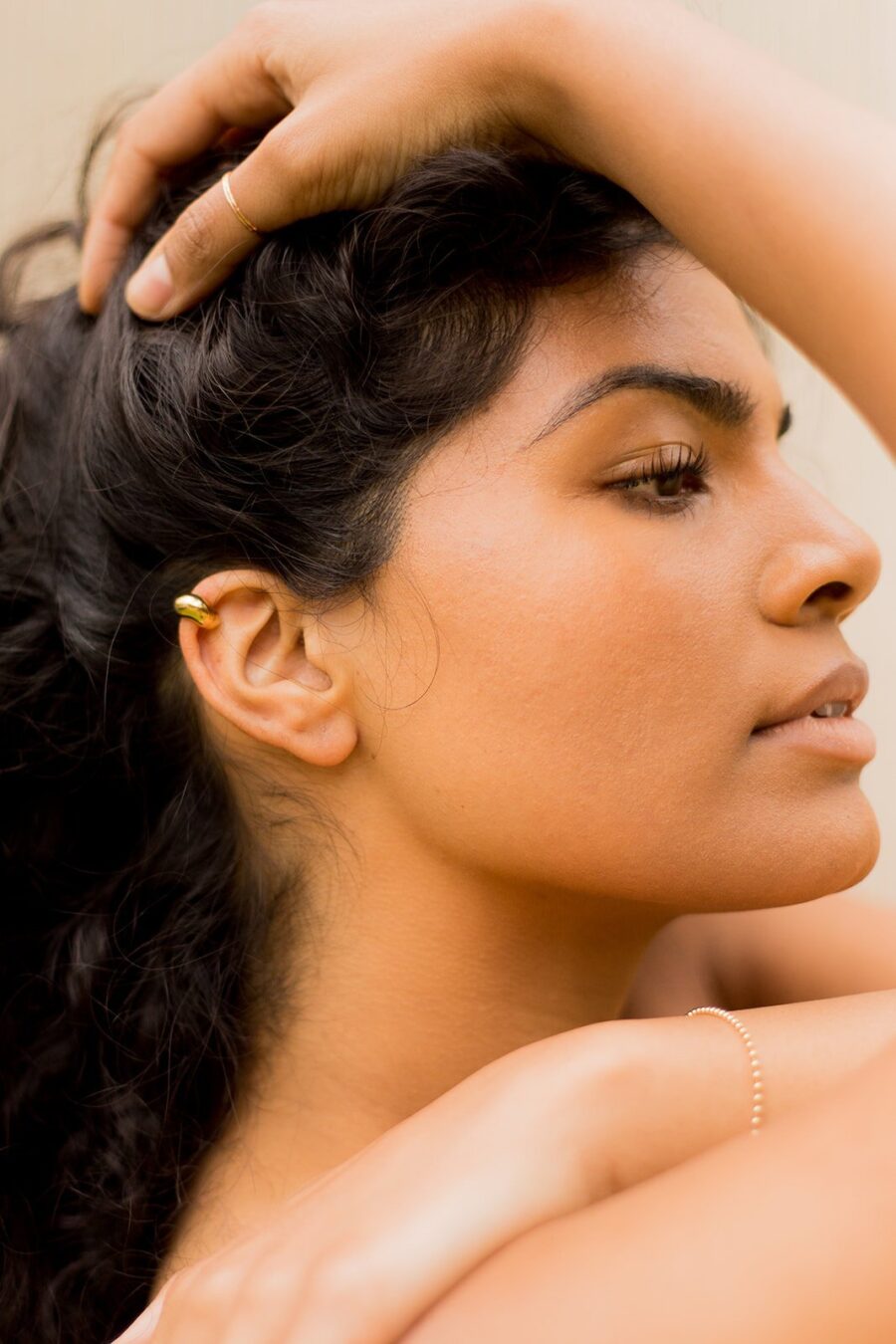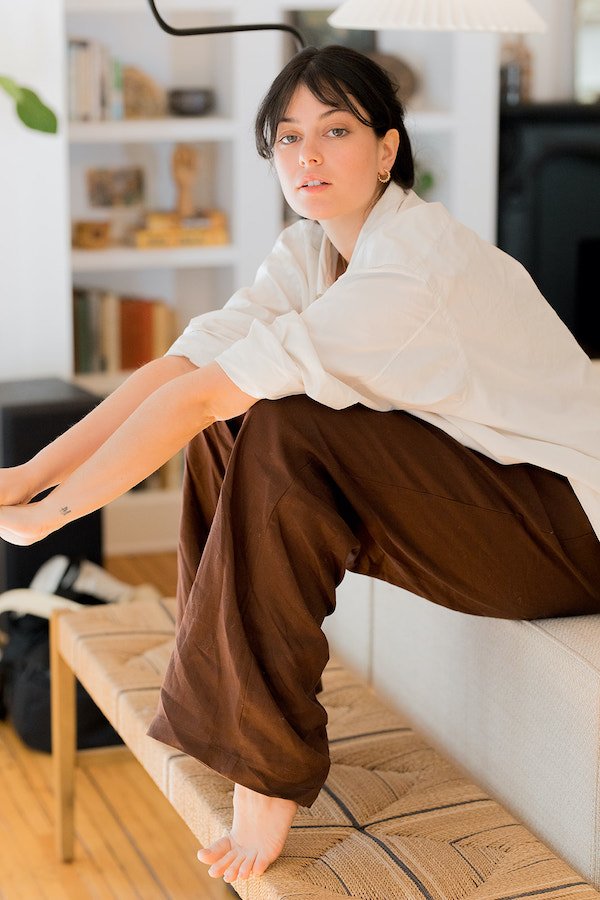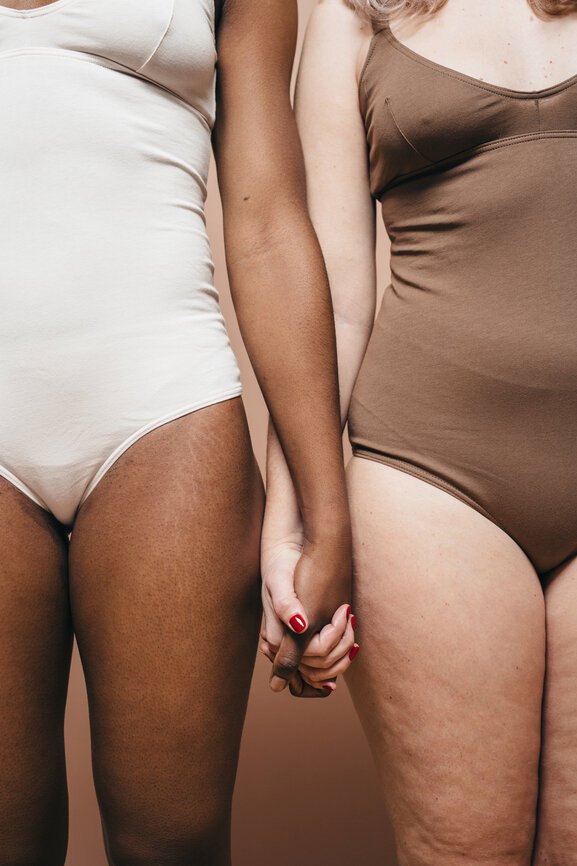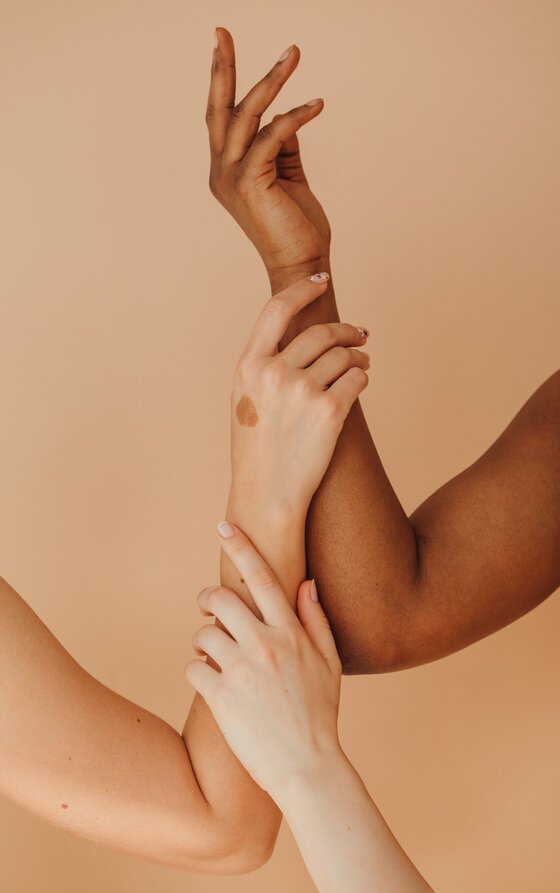
I’m A Woman And I Shave My Face—And That’s Okay
Yep, I Shave My Face.
I was born with a lot of hair. So much so that I had thick sideburns even as a baby. Over the years, my mother and grandmother would attempt to (lovingly) scrub down my face and arms with a towel, hoping to thin out the hair bit by bit over time. (*Narrator voice*: This did not work.)
By the time I entered middle school, I was bullied about my body and facial hair. One girl—who, yes, I still remember—called me a gorilla; another said I was an ewok. (But joke’s on them because ewoks are awesome.) A fellow student teased me in front of dozens of my peers that I left hair everywhere I went.
“In my mind, if anyone even vaguely saw my facial hair, their judgement would continue exacerbating my own insecurities.”
Eventually, I decided I’d rather look like the girl from The Ring than put my hair behind my ears. I also always wore my hair down, refusing to pull the long black tresses back into a ponytail; I still never do in public. Because, in my mind, if anyone even vaguely saw my facial hair, their judgement would continue exacerbating my own insecurities.
Then on one fateful day in 6th grade, I boldly asked—as much as a 12-year-old can—my hair stylist to shave the sideburns off. “Are you sure you want to do this?” My mom questioned. Then she reminded me, concerned, “If you start now, you’ll have to keep this up forever.” I didn’t care; I wanted to do it anyway.
In any other scenario, I would’ve been terrified of the buzz of the clippers. Instead, I embraced the sound, knowing they’d tackle an insecurity I’d incessantly worried about. And within minutes, I had a face I’d never quite seen before, peppered with hair trimmings, but free of wildly bushy sideburns. The first features I usually noticed about my appearance were no longer there, and I could focus on my actual face. I felt liberated.
Yet, as you can imagine—and as my mom predicted—this decision required upkeep afterwards. After a separate bout of facial laser hair removal didn’t quite work, I also expanded from just the sides to the cheeks and upper lip as well. Since that moment 17 years ago, I’ve shaved that area upwards of 200 times (and that’s a conservative estimate). If each shave takes 10 minutes, that’s almost two full days I’ve spent on this routine, and hundreds of dollars spent on Tinkle razor blades and clipper blade cartridges.
“And while this has outwardly boosted my youthful self-confidence in a society that values hair-free skin, the invisible, internal shame I felt has stayed around.”
And while this has outwardly boosted my youthful self-confidence in a society that values hair-free skin, the invisible, internal shame I felt has stayed around.
Because while my friends chatted about threading their eyebrows or exploring bikini waxes, I felt I was harboring this huge secret—I was shaving. my. face. I owned a pair of men’s trimming clippers by the age of 15; when anyone asked, I’d say they belonged to my brother and change the subject.
Then I started worrying that the growth would get worse; would I one day have a beard of thick hair, or a five-o’clock shadow within hours? (No.) Would shaving exacerbate my skin issues and cause ingrown hairs and scarring? (Luckily, nope.) What if I scared away a potential partner if my hair grew too long and they *gasp* noticed it? (Didn’t happen.)
The truth is, plenty of women have gone through similar experiences and ask these same questions. We all go through the same cycle, too: shame from hair, shave the hair, shame from shaving.
Yet hair, including facial hair, is normal! From genetics to conditions like PCOS and hirsutism to gender transitions, millions of women deal with facial hair—and the associated stigma—even if we’re still not perfectly comfortable talking about it.
There is a conversation happening about facial hair removal, but it’s usually about the influencer trend of dermaplaning or to smooth the skin before applying makeup. But otherwise, it’s poised as a juicy “confession”, like features on Health.com, Moms, and Birchbox. Or we’re told not to do it in the first place, with thousands of Google searches asking “should women shave their face” and responses like “no, it’s a terrible idea!”
“Hair, including facial hair, is normal! From genetics to conditions like PCOS and hirsutism to gender transitions, millions of women deal with facial hair.”
Those aren’t the conversations I want to have. The question I want to ask is, “Why?”
Why does it matter? Why, exactly, is shaving my facial hair a dirty little secret? Why does our heteronormative society see men’s facial hair as attractive yet women’s as gross? Conversely, I don’t see anyone commenting on the hair-free patches on my husband’s legs saying it’s too feminine, and I’m fairly sure no one would even notice if he began waxing them entirely. (See, past-Henah, you did find a partner who loves you, even with your sideburns.)
I want you to know: It doesn’t matter. Whether you’re reading this as a younger version of me, contemplating shaving your face for the first time, or decades older than me and noticing a few cheek and chin hairs here and there: Your decision to shave your face—or not—shouldn’t matter to anyone. The choice is yours alone, one that never deserves shame.
Because you’re human, and that’s the most normal thing in the world.
“Your decision to shave your face—or not—shouldn’t matter to anyone. The choice is yours alone, one that never deserves shame.”
Henah Velez (she/her) is an Editor at The Good Trade. She holds a Master’s in Social Entrepreneurship and is a proud Rutgers grad. Originally from NJ, Henah’s now in Santa Barbara, CA, where she loves shopping small, hanging with her pets, or traveling. Say hi on Instagram!




